Premium Herbs Europe: Top-Ranking Best Suplier’s Guide for Buyers 2024 – 2025 | UK | Germany | Belgium | Netherlands | France | The EU
Premium herbs Europe2024 – 2025 is our category for we export premium fresh herbs to Europe, including chives, thyme, rosemary, basil, oregano, tarragon, and sage. We ensure that all herbs are harvested at their peak freshness to maximize flavor and nutritional value. Our approach significantly boosts their taste and efficacy. This guide tells you how to select a supplier and the measures to take to maintain the quality of the herbs that you buy.
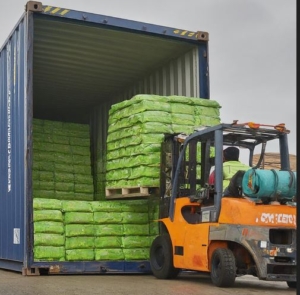
Our company is called Mulberry Growers and we are premium herb suppliers dealing in Premium Herbs Europe that ensure top-quality products reach the European market in peak condition. By choosing suppliers who focus on this aspect, European importers or importer of Premium Herbs Europe can guarantee that their herbs will deliver the best possible experience to their customers.
Freshness Preservation
Maintaining a consistent cold chain from harvest to delivery is crucial for preserving herb freshness. An effective cold chain prevents the deterioration of herbs, ensuring they arrive in optimal condition. European businesses should select suppliers who have robust cold chain systems in place, which include temperature-controlled storage and transport. Suppliers who prioritize cold chain management will deliver herbs that retain their flavor, aroma, and quality, providing a competitive edge in the market.
Advanced packaging methods are vital for preventing wilting and spoilage of herbs. The right packaging ensures that herbs remain fresh during transit and storage. Look for suppliers who use innovative packaging solutions designed to maintain herb quality. Suppliers with expertise in packaging, such Mulberry Growers, often utilize technologies that extend shelf life and preserve the herbs’ essential properties, helping European importers or importer of Premium Herbs Europe receive herbs that meet high standards of freshness and quality.
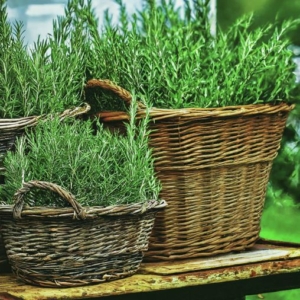
Quality Certification
Organic Certification: Obtaining organic certification is essential for ensuring that herbs are grown without synthetic pesticides or fertilizers. European importers or importer of Premium Herbs Europe should prioritize suppliers who have achieved organic certification, guaranteeing that the herbs meet strict organic farming standards. This certification not only ensures the purity and quality of the organic herbs but also aligns with increasing consumer demand for organic products. Suppliers from regions like Kenya who are certified organic can offer herbs that meet these stringent requirements, ensuring your products appeal to health-conscious consumers.
GAP Certification: Securing Good Agricultural Practices (GAP) certification is crucial for confirming that herbs are grown using safe and sustainable farming practices. This certification helps ensure that the herbs are produced in a manner that minimizes environmental impact and maintains high safety standards. European importers or importer of Premium Herbs Europe should look for suppliers who hold GAP certification, as it provides assurance that the herbs are cultivated under rigorous quality and safety protocols. Kenyan suppliers often adhere to these standards, offering reliable and high-quality herb options.
Quality Assurance Standards: Adhering to international quality standards for fresh produce is imperative for maintaining consistent herb quality. European businesses should seek suppliers who follow recognized quality assurance standards to ensure that herbs meet global quality expectations. This includes adherence to hygiene practices, product safety, and quality controls. Suppliers who comply with these standards, including those from Kenya, demonstrate a commitment to delivering herbs that meet the highest levels of quality and safety.
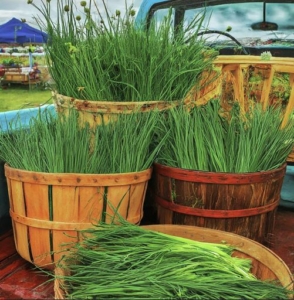
Flavor Profile Consistency
Varietal Selection: Choosing herb varieties known for their consistent flavor profiles and quality is essential for maintaining product standards. Suppliers who specialize in specific herb varieties often have better control over flavor consistency. European importers or importer of Premium Herbs Europe should select suppliers who focus on varietal selection, ensuring that the herbs they receive have reliable and predictable flavor profiles. Suppliers dealing in Premium Herbs Europe, known for their high-quality herb varieties, can provide consistent flavor, meeting the expectations of discerning European markets.
Flavor Testing: Regular flavor testing is necessary to ensure herbs meet desired taste profiles. Importers should work with suppliers who conduct rigorous flavor testing to maintain consistency and quality. This process helps in identifying any variations in flavor and ensures that only herbs meeting the desired standards are shipped. Suppliers who invest in flavor testing, such as those from Kenya, demonstrate a commitment to delivering herbs with consistent and high-quality taste profiles.
Supplier Evaluation: Evaluating suppliers based on their ability to consistently produce high-quality herbs is critical for ensuring product excellence. European businesses should assess suppliers’ track records and capabilities to determine their reliability in maintaining flavor and quality. Suppliers who demonstrate a proven history of consistent production, including those from Kenya, can provide assurance that their herbs will consistently meet quality and flavor expectations, supporting a reliable supply chain.
Pest and Disease Management
Integrated Pest Management: Implementing integrated pest management (IPM) strategies helps minimize herb contamination and ensures high-quality products. European importers or importer of Premium Herbs Europe should choose suppliers who employ IPM techniques, which combine biological, cultural, and chemical methods to manage pests effectively. This approach reduces the reliance on harmful pesticides and promotes healthier herb production. Suppliers with robust IPM practices, including those from Kenya, offer herbs that are less likely to be contaminated and more sustainable.
Disease Monitoring: Regular monitoring and controlling plant diseases are essential for maintaining healthy and high-quality herbs. Importers should select suppliers who have comprehensive disease monitoring programs in place to prevent and address plant health issues. This includes routine inspections and proactive measures to manage potential diseases. Suppliers who prioritize disease monitoring, such as those from Kenya, ensure that their herbs are free from diseases and meet high-quality standards.
Sanitation Protocols: Maintaining strict sanitation protocols in growing and handling facilities is crucial for preventing contamination and ensuring herb quality. European businesses should look for suppliers who adhere to rigorous sanitation practices throughout their operations. This includes cleaning equipment, facilities, and adhering to hygiene standards. Suppliers from regions like Kenya who implement effective sanitation protocols offer herbs that are safe, clean, and of superior quality, meeting the highest standards of freshness and safety.
Traceability
Supply Chain Tracking: Implementing systems to track herbs from farm to final destination ensures transparency and accountability. European importers or importer of Premium Herbs Europe should seek suppliers who use advanced supply chain tracking technologies to monitor the journey of their herbs. This tracking system provides insights into the origin and handling of the products, ensuring that they meet quality and safety standards. Suppliers with robust tracking systems, such as those from Kenya, offer enhanced transparency and reliability.
Batch Information: Providing detailed batch information for each shipment is essential for maintaining transparency and quality control. European businesses should choose suppliers who offer comprehensive batch information, including harvest dates, processing details, and origin. This information allows importers to trace the herbs back to their source and verify their quality. Suppliers who provide thorough batch information, including those from Kenya, support a transparent supply chain and help ensure that the herbs meet quality expectations.
Recall Procedures: Establishing efficient recall procedures is crucial for managing quality issues and ensuring product safety. European importers or importer of Premium Herbs Europe should select suppliers who have well-defined recall procedures in place to address any potential quality concerns promptly. This includes clear protocols for identifying, isolating, and resolving issues. Suppliers with robust recall procedures, such as those from Kenya, offer peace of mind by ensuring that any potential problems are managed effectively and efficiently, safeguarding the quality of the herbs.
Nutritional Value
Nutrient Testing: When selecting a herb supplier, it is crucial to ensure that herbs meet high nutritional quality standards. Reliable suppliers conduct thorough nutrient testing to confirm that their herbs provide the intended health benefits. This testing verifies that the herbs are rich in essential vitamins, minerals, and other nutrients. For European importers or importer of Premium Herbs Europe, choosing suppliers who prioritize nutrient testing ensures that the herbs they source, whether from Kenya or other regions, will contribute positively to the nutritional profiles of their products, meeting consumer expectations for health benefits.
Soil Quality: High-quality soil and growing practices are vital for enhancing the nutritional content of herbs. Suppliers who invest in maintaining optimal soil conditions can produce herbs with superior nutrient profiles. European importers or importer of Premium Herbs Europe should prioritize suppliers who utilize rich, well-managed soil and sustainable growing methods to maximize the nutritional value of their herbs. Suppliers dealing in Premium Herbs Europe, known for their attention to soil health, can offer herbs with enhanced nutrient content, aligning with the growing demand for nutritionally robust products in the European market.
Harvest Timing: Timing harvests to ensure maximum nutrient retention is essential for delivering high-quality herbs. Herbs should be harvested at the peak of their nutritional value to ensure they offer the highest levels of beneficial compounds. European importers or importer of Premium Herbs Europe should seek suppliers who carefully time their harvests to preserve the maximum amount of nutrients. Suppliers with expertise in optimal harvest timing, such as those from Kenya, provide herbs that retain their nutritional integrity, meeting the expectations of health-conscious European consumers.
Aroma Intensity for Premium Herbs Europe
Aroma Testing: Regular testing for aroma intensity is essential to ensure that herbs meet premium quality standards. High-quality herbs should have a strong, appealing aroma that reflects their freshness and potency. European importers or importer of Premium Herbs Europe should choose suppliers who perform consistent aroma testing to maintain the intensity and quality of their herbs. Suppliers who prioritize aroma testing, including those from Kenya, can offer herbs with robust aromatic properties, enhancing the sensory experience and satisfaction of their end customers.
Cultivation Techniques: Using specialized cultivation techniques can significantly enhance the aromatic properties of herbs. Suppliers should employ methods that maximize the natural oils and compounds responsible for the herbs’ aroma. European importers or importer of Premium Herbs Europe should look for suppliers who use advanced cultivation techniques to ensure that the herbs they receive have strong and desirable aromas. Suppliers dealing in Premium Herbs Europe, with their sophisticated growing methods, often produce herbs with enhanced aromatic qualities, meeting the high standards expected by European buyers.
Storage Conditions: Maintaining optimal storage conditions is crucial for preserving the aroma of herbs during transport and warehousing. Proper storage prevents the loss of aromatic compounds and ensures that herbs retain their full fragrance. European importers or importer of Premium Herbs Europe should select suppliers who implement effective storage solutions to safeguard the aroma of their herbs. Suppliers who manage storage conditions carefully, including those from Kenya, provide herbs that maintain their aromatic intensity, delivering a high-quality product that meets European market standards.
Visual Appeal
Appearance Standards: Establishing rigorous appearance standards for color, leaf integrity, and overall visual quality is key to ensuring that herbs meet market expectations. Suppliers should have clear criteria for the visual characteristics of their herbs to ensure consistency and quality. European importers or importer of Premium Herbs Europe should select suppliers who adhere to strict appearance standards to receive herbs that are visually appealing and meet high-quality benchmarks. Suppliers dealing in Premium Herbs Europe, known for their attention to visual quality, can offer herbs that stand out in the European market.
Sorting and Grading: Implementing rigorous sorting and grading processes ensures that only the best herbs are selected for export. Effective sorting removes any substandard or defective herbs, while grading classifies herbs according to quality. European importers or importer of Premium Herbs Europe should prioritize suppliers who have comprehensive sorting and grading systems in place. Suppliers who follow meticulous sorting and grading practices, such as those from Kenya, provide herbs that meet high visual standards and appeal to discerning European buyers.
Inspection Protocols: Conducting thorough visual inspections before packaging is essential for maintaining high visual quality in herbs. Suppliers should implement strict inspection protocols to identify and address any visual defects or inconsistencies. European importers or importer of Premium Herbs Europe should choose suppliers who prioritize detailed inspections to ensure that only top-quality herbs are shipped. Suppliers dealing in Premium Herbs Europe who follow rigorous inspection protocols offer herbs that meet high visual standards, enhancing their appeal in the competitive European market.
Sustainable Farming Practices
Eco-Friendly Methods: Employing environmentally friendly farming practices is crucial for minimizing the ecological impact of herb production. Suppliers who use sustainable methods contribute to environmental conservation and produce herbs with a lower carbon footprint. European importers or importer of Premium Herbs Europe should seek suppliers who prioritize eco-friendly practices to align with growing consumer demand for sustainable products. Suppliers dealing in Premium Herbs Europe, known for their commitment to sustainability, can provide herbs grown with minimal environmental impact, appealing to European buyers seeking green solutions.
Resource Management: Efficient water and resource management practices are vital for supporting sustainability in herb farming. Suppliers should use resources wisely to minimize waste and promote responsible agriculture. European importers or importer of Premium Herbs Europe should select suppliers who implement effective resource management strategies to ensure that herbs are produced sustainably. Suppliers dealing in Premium Herbs Europe, with their focus on efficient resource use, offer herbs that align with European standards for sustainable production and responsible environmental stewardship.
Soil Health: Maintaining soil health through sustainable farming techniques is essential for producing high-quality herbs. Healthy soil contributes to better herb growth and nutritional value while supporting long-term agricultural sustainability. European importers or importer of Premium Herbs Europe should choose suppliers who prioritize soil health through practices like crop rotation and organic amendments. Suppliers dealing in Premium Herbs Europe, who emphasize soil health, provide herbs that are not only high in quality but also produced in a manner that supports sustainable farming practices.
Temperature Control
Pre-Harvest Cooling: Using pre-harvest cooling techniques helps maintain the freshness and quality of herbs. Cooling the herbs before harvest can slow down deterioration and preserve their optimal characteristics. European importers or importer of Premium Herbs Europe should seek suppliers who implement effective pre-harvest cooling methods to ensure that the herbs arrive in the best possible condition. Suppliers dealing in Premium Herbs Europe, who use advanced cooling techniques, offer herbs that retain their freshness and quality throughout the supply chain.
Transport Temperature: Ensuring that transport vehicles are equipped with temperature control systems is essential for preserving herb quality during transit. Proper temperature management prevents spoilage and maintains the herbs’ freshness and potency. European importers or importer of Premium Herbs Europe should choose suppliers who invest in temperature-controlled transport to ensure that herbs arrive in optimal condition. Suppliers with advanced temperature control systems, such as those from Kenya, provide reliable and high-quality herbs for the European market.
Storage Conditions: Providing appropriate storage conditions is crucial for preserving herb quality during warehousing. Herbs should be stored in environments that control humidity and temperature to prevent deterioration. European importers or importer of Premium Herbs Europe should select suppliers who offer suitable storage solutions to maintain the quality of their herbs. Suppliers dealing in Premium Herbs Europe, who ensure optimal storage conditions, deliver herbs that remain fresh and high-quality, meeting the standards expected by European buyers.
Compliance with Import Regulations
Regulatory Adherence: Ensuring that all imported herbs comply with local and international import regulations is essential for smooth business operations. Suppliers should adhere to all relevant regulations to prevent delays and ensure that products meet market standards. European importers or importer of Premium Herbs Europe should choose suppliers who demonstrate a commitment to regulatory compliance, including those from Kenya, to facilitate hassle-free imports and ensure that the herbs meet all necessary legal requirements.
Documentation: Maintaining accurate documentation is critical for facilitating smooth customs clearance and ensuring compliance with import regulations. Suppliers should provide detailed and accurate paperwork to support the import process. European importers or importer of Premium Herbs Europe should prioritize suppliers who handle documentation efficiently, reducing the risk of delays. Suppliers dealing in Premium Herbs Europe who manage documentation effectively help ensure a seamless import experience, meeting European standards for regulatory adherence and documentation accuracy.
Quality Inspections: Conducting quality inspections to meet regulatory standards is essential for ensuring that herbs are safe and compliant with import requirements. Suppliers should implement thorough inspection processes to verify that their herbs meet all quality and safety standards. European importers or importer of Premium Herbs Europe should select suppliers who prioritize rigorous quality inspections, including those from Kenya, to ensure that the herbs meet all regulatory and quality criteria, providing a reliable and compliant product for the European market.
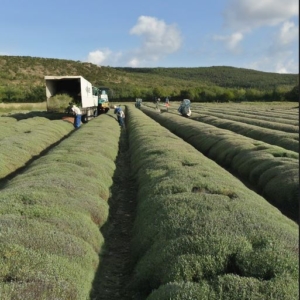
Handling Procedures
Gentle Handling: Ensuring the gentle handling of fresh herbs is crucial to prevent bruising and damage, which can compromise quality and freshness. Suppliers should adopt careful handling techniques throughout the harvesting and processing stages to maintain the integrity of the herbs. European importers or importer of Premium Herbs Europe should seek suppliers who prioritize gentle handling practices to ensure that the herbs arrive in pristine condition. Suppliers from regions like Kenya, known for their meticulous approach to herb handling, offer products that meet high standards of quality and freshness, crucial for the European market.
Training: Providing comprehensive training for staff on best practices for handling fresh herbs is essential to maintain high-quality standards. Well-trained personnel are adept at managing herbs carefully, reducing the risk of damage during processing and transportation. European importers or importer of Premium Herbs Europe should select suppliers who invest in staff training to ensure optimal handling of herbs. Suppliers dealing in Premium Herbs Europe, who emphasize thorough training programs, deliver herbs that maintain their quality and appeal, meeting the expectations of discerning European buyers.
Equipment Maintenance: Regular maintenance of handling equipment is vital to prevent contamination and ensure the safe processing of fresh herbs. Well-maintained equipment minimizes the risk of contamination and damage to the herbs. European importers or importer of Premium Herbs Europe should prioritize suppliers who implement stringent equipment maintenance protocols to ensure the highest standards of hygiene and quality. Suppliers dealing in Premium Herbs Europe, who adhere to rigorous equipment upkeep practices, provide herbs that are not only fresh but also meet the European market’s stringent quality requirements.
Packaging Innovation
Vacuum Sealing: Utilizing vacuum-sealed packaging is an effective method for extending the shelf life and preserving the freshness of herbs. Vacuum sealing removes excess air, reducing the risk of spoilage and extending the period during which herbs remain at peak quality. European importers or importer of Premium Herbs Europe should seek suppliers who use advanced vacuum-sealing techniques to ensure that their herbs arrive in optimal condition. Suppliers dealing in Premium Herbs Europe who implement cutting-edge packaging technology offer herbs that maintain their freshness and quality throughout the supply chain.
Breathable Materials: Using packaging materials that allow for gas exchange is crucial for preventing spoilage and maintaining herb quality. Breathable packaging helps manage moisture and gas levels, which is essential for preserving freshness. European importers or importer of Premium Herbs Europe should select suppliers who use innovative packaging materials that enhance the shelf life of herbs. Suppliers dealing in Premium Herbs Europe who employ breathable packaging solutions provide herbs that retain their quality and freshness, meeting the high standards expected by European markets.
Tamper-Evident Features: Incorporating tamper-evident features into packaging ensures the integrity and safety of the herbs. These features provide visual indicators if the packaging has been compromised, reassuring importers of the product’s quality. European importers or importer of Premium Herbs Europe should prioritize suppliers who implement tamper-evident packaging solutions to safeguard against contamination and ensure product authenticity. Suppliers dealing in Premium Herbs Europe, known for their commitment to quality and security in packaging, offer herbs with tamper-evident features that meet European market requirements for safety and reliability.
Contact Us – We Supply Europe with Premium Herbs
At Mulberry Growers, we cultivate rosemary, oregano, sage, chives, thyme, basil, and tarragon, and export to Europe, including: Germany, the UK, Belgium, Netherlands, France, other EU nations and non-EU regions.
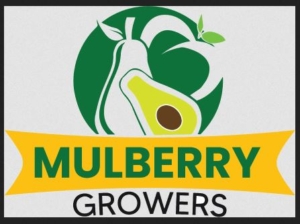
We welcome you to make any initial inquiries here:
- Call/WhatsApp: +254 716 150 111 OR +254 748 897 749
- Our Email: commercial@mulberrygrowers.com
- Website: www.mulberrygrowers.com